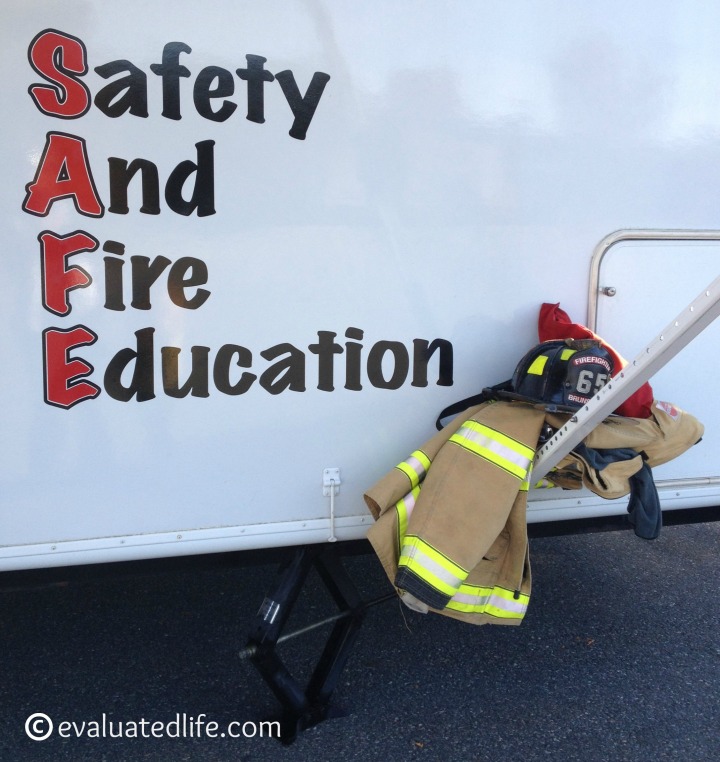It’s Fire Prevention Week so this post is in honor of my dad, a retired firefighter and fire prevention educator.
Herosim is about concern for other people in need, a concern for defending a moral cause knowing there is a personal cost or risk…and you do it without expectation of reward.
The quote above is by Phil Zimbardo, PhD, President and Director of Research for the Heroic Imagination Project. Zimbardo and the HIP team believe we’re all heroes in waiting. We don’t need a uniform or special training. You can read more about what makes a hero here.
What I found most heroic about my dad was the work he did to prevent fires when not many people saw the value of this approach. Here are few lessons I learned by watching my dad simply do what he was called to do.
Lesson 1: Let yourself be affected by the world.
When I was about 3 my dad found a picture in a firefighting trade magazine that changed his life. A tragic cameo was left behind by a little girl who never woke up when fire stuck her home- her toddler curls silhouetted against the smoky remains of her bed. Dad knew there had to be another way to fight fires than, “putting wet stuff on red stuff”. He taught his first fire prevention class not long after he saw that picture- at my nursery school.
Lesson 2: Service is greater than glory.
Dad taught kids how to treat a minor burn, practice exit drills at home and the importance of having and checking smoke detectors. It was work that lacked the glory typically associated with the fire service- riding on fire trucks and running into burning buildings. To be fair, he DID still run into burning buildings. He simply thought it was a better idea if people didn’t have to do that.
Lesson 3: The unmeasurable matters.
Funding the fire prevention program was a continual battle. The department leadership wanted proof that the program worked. Dad’s struggles to justify what he did made me wonder, “how do you measure the non-happening of something?” By observation, I knew my dad made a difference because we couldn’t even get a gallon of milk from Wegman’s without someone stopping him to chat about fire prevention. Kids we didn’t know would come yelling, “Fireman Mike, Fireman Mike!” It drove my sister crazy! Parents might scowl at Dad, blaming him for having to spend $40 on new smoke detectors to avoid being pestered to death by their kids. I’m fairly sure Dad also collected other data about the programs, but this is the one I remember.
Lesson 4. Be equal with your audience.
Dad studied engineering in college, not fire science. He finds creative ways to solve problems and is a natural-born story teller. He used an overhead projector (remember those?) as a kind of diffuser to teach kids the difference between a smell, a scent, and an odor. He knew fire gear looked scary to kids. He put it on piece by piece so they wouldn’t be scared if a fire fighter ever had to rescue them. Dad also got on the floor with the kids when he taught. He never talked down to anyone.
Lesson 5. It’s OK to be many things. In fact, it’s better and more fun.
Some professions do not come with an “off” switch. First responders always respond- they can’t help it. Dad has been retired for years and still has a first responder mindset. He was also co-leader of my Girl Scout troop. He knows something about everything from carpentry to Chinese cooking to the Civil War to cartography. When I studied Earth Science in 9th grade, Dad took me and my sister on a hike and showed us an esker. The great thing about Dad’s approach to life is that when he retired, he had no shortage of interests to pursue or ways to have fun. He also didn’t completely lose his identity when “Fireman Mike” hung up his hat.
Lesson 6: There are lots of ways to be brave.
Kids often thought it was cool that my dad was a fire fighter. I saw dad at some “working fires” and witnessed a few emergencies. It was exciting. What touched me even more was watching my dad stand up for what he felt to be right even when it wasn’t popular or posed a risk to himself. Doing what you believe when it seems you’re the only one who believes it is brave- as brave as running into burning buildings.
Lesson 7: Be part of a team.
Research indicates heroes are more effective in a network. Fire fighters are a special kind of team- they’re a professional family. Police officers are the same way. Dad taught fire prevention with firefighters from other departments. They partnered with and learned from teachers on curriculum design and content delivery. They also engaged high school students and members of the National Honor Society to operate the puppets involved in some of the programs. A lot of people got to be involved in making a difference.
Lesson 8: Always have two ways out and check the batteries in your smoke alarm.
Rather than take the next quiz to find out what brand of hipster you are, take this quiz on smoke alarm safety. Visit the National Fire Prevention Association website for tools to be smarter about fire safety, or stop by your local fire department. Apply your learning and see how you can improve the safety in your home. Sparky the Fire Dog has great kid-friendly resources on his website, too.
Do these things and you’ll be a hero. It’ll make my dad happy, too.


